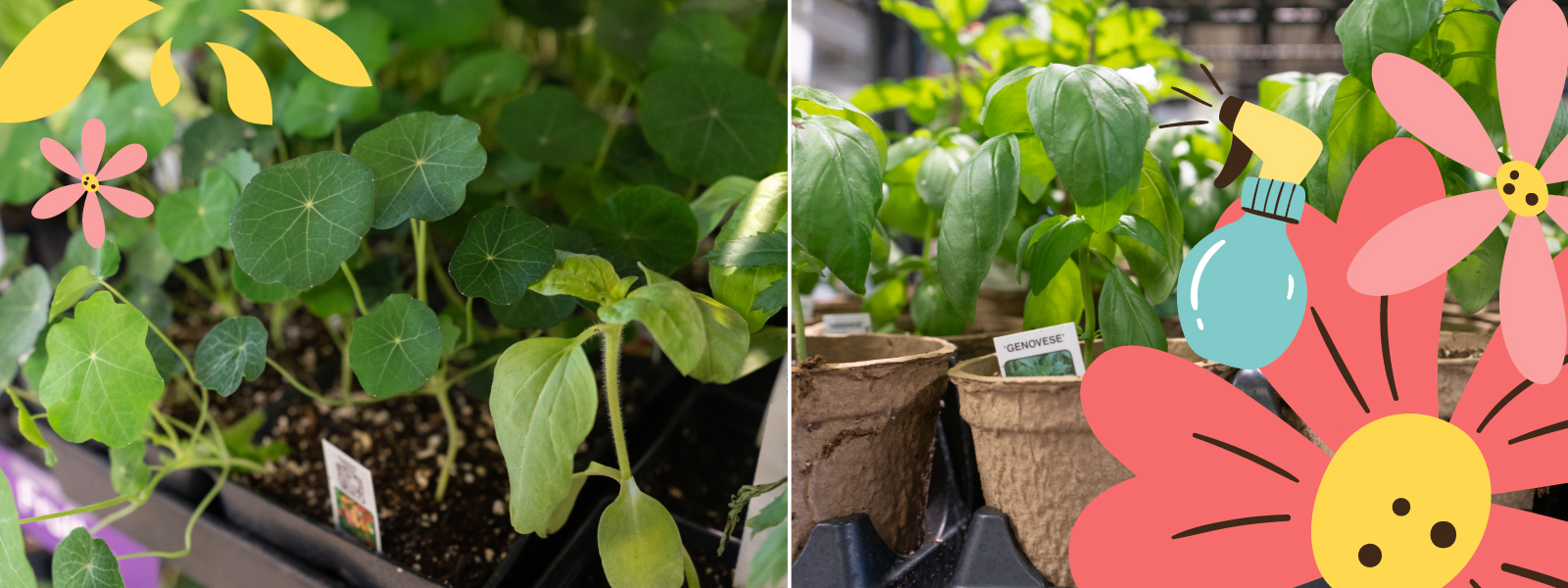Spring is in the air, and gardening season is just around the corner. With seed packets in stores and starter plants arriving in early May, there are dozens of veggie, fruit, flower, and herb options for you to bring your own personalized plot to life. Whether you’re new to gardening or have more than a few seasons under your belt, check out our Growing Guide to learn some helpful basics, meet the starter plant and seed producers, and get ready to get growing.
From Seeds to Starters: The Seward Co-op Growing Guide
Starter Plants 101
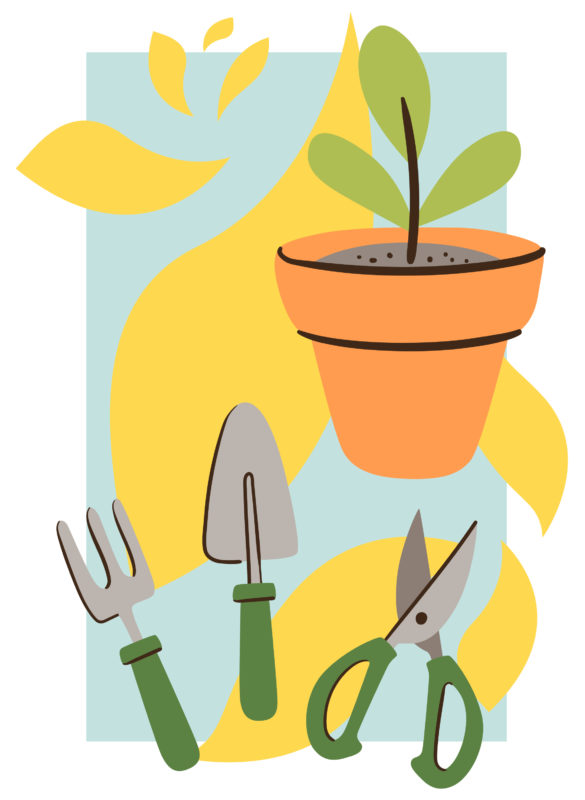 Starter plants, or seedlings, are small, young plants that can kick start your garden, as all of the work of growing from seed has already been done. In late spring, Seward Co-op carries a wide variety of starter plants from local producers. Here are some steps to get your starters into the ground:
Starter plants, or seedlings, are small, young plants that can kick start your garden, as all of the work of growing from seed has already been done. In late spring, Seward Co-op carries a wide variety of starter plants from local producers. Here are some steps to get your starters into the ground:
- Try to plant on a cloudy day with minimal wind.
- Moisten your garden soil, but not so much that it’s soaking wet. It can also be helpful to water your starters before transplanting them into your garden.
- Dig your hole for planting. Make it a little wider than your starter’s root ball and just as deep.
- Turn the starter container upside down and place your other hand on the soil side to offer support. Gently tap the container to get the starter plant out.
- Place your starter in the hole you just dug.
- Fill the hole with soil and tap lightly around the starter so the roots and soil make good contact.
- Water the soil thoroughly after transplanting.
- After a few days, add a starter fertilizer if you like, according to instructions.
- Be sure to keep your newly transplanted starter moist, watering typically once a day until the plant is well established.
Source: https://www.almanac.com/tips-transplanting-seedlings
Great Starter Plants for Beginners
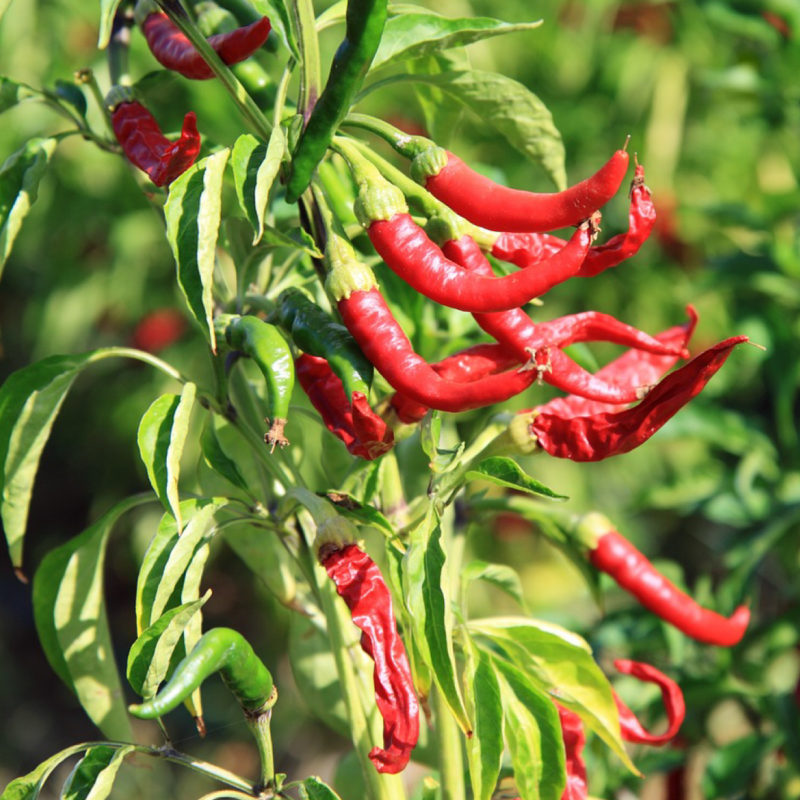
Hot Peppers 6+ hours of sun per day
Unlike tomatoes and other fruits, squirrels and rabbits will leave these alone
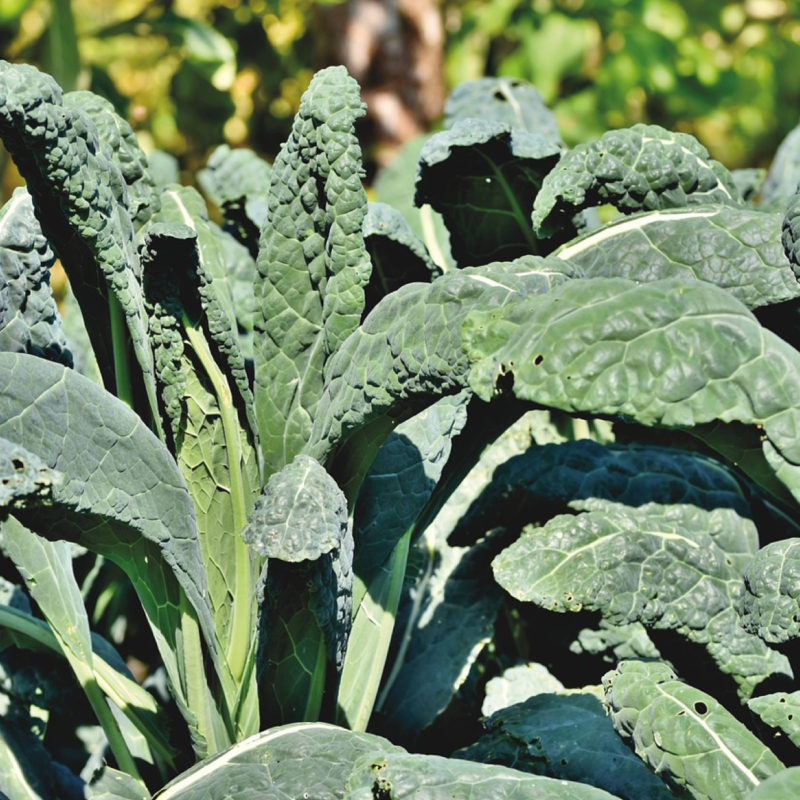
Kale 4+ hours of sun per day
Get a continual harvest all summer and even after a light frost in late autumn
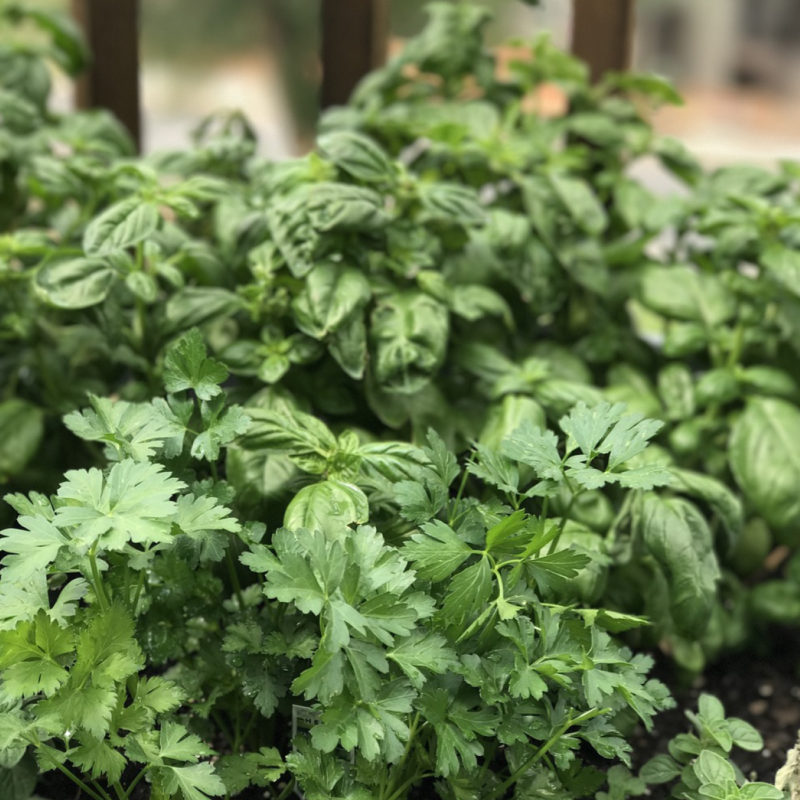
Basil and other herbs
Herbs are naturally very pest-resistant and don’t require a lot of space to grow
Getting in the Zone
The U.S. Department of Agriculture keeps an up-to-date map of plant hardiness zones that informs which plants, particularly perennials, can be grown in different climates across the country. As of 2023, the Twin Cities are now in Zone 5a. Seward Co-op sells seeds and starter plants from local producers who cater to our zone, so you can be sure to find the right plants for our particular area.
Super Sowing Selections
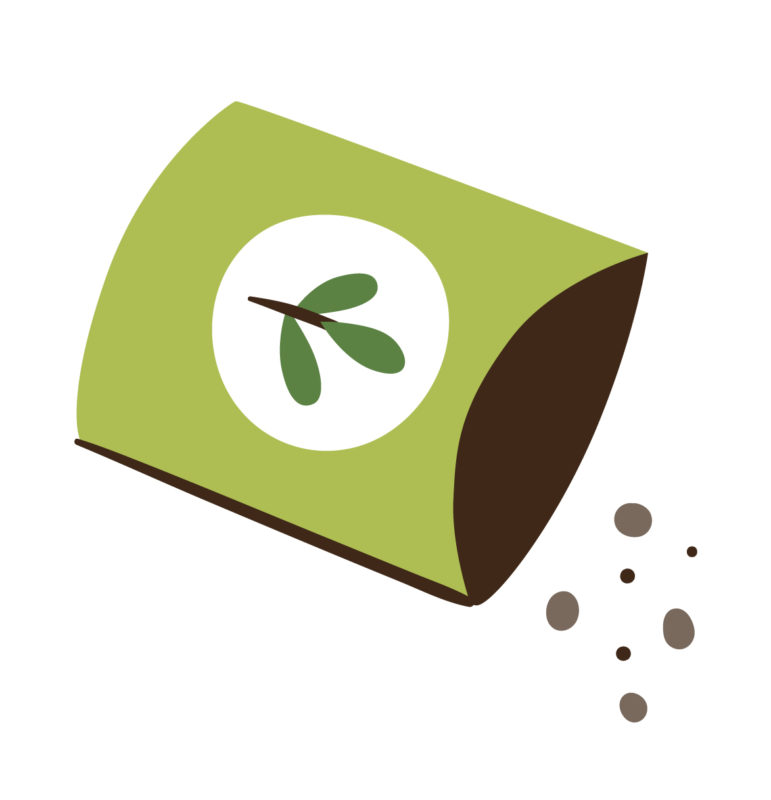 Ready to try growing from seed? Though many gardeners will start their seeds with an indoor set up, you don’t need one. Direct sowing in your outdoor garden can work wonderfully. Remember: Gardening is about trying things! Of course, it can be overwhelming with all the “rules” to follow. Our tip? Use the things you learn as a guide, and if you can’t make your conditions perfect, it’s usually still worth a shot. Even if your yields are smaller than in the most ideal growing conditions, growing from seeds can be an affordable way to experiment and begin growing your own food.
Ready to try growing from seed? Though many gardeners will start their seeds with an indoor set up, you don’t need one. Direct sowing in your outdoor garden can work wonderfully. Remember: Gardening is about trying things! Of course, it can be overwhelming with all the “rules” to follow. Our tip? Use the things you learn as a guide, and if you can’t make your conditions perfect, it’s usually still worth a shot. Even if your yields are smaller than in the most ideal growing conditions, growing from seeds can be an affordable way to experiment and begin growing your own food.
Have little ones you want to plant seeds with? Try this Microgreens activity for planting calendula seeds.
Great Beginner Seeds to Direct Sow in the Garden
Cool season crops (sow in early April)
• Radishes
• Peas
• Carrots
• Beets
• Lettuces
Warm season crops (sow after last frost date–April 30)
• Beans
• Corn
• Cilantro
• Dill
• Melons
• Cucumbers and Zucchini
Check your seed packet for instructions on how deep to bury the seed. Remember to water consistently (about once a day) so that the soil remains moist.
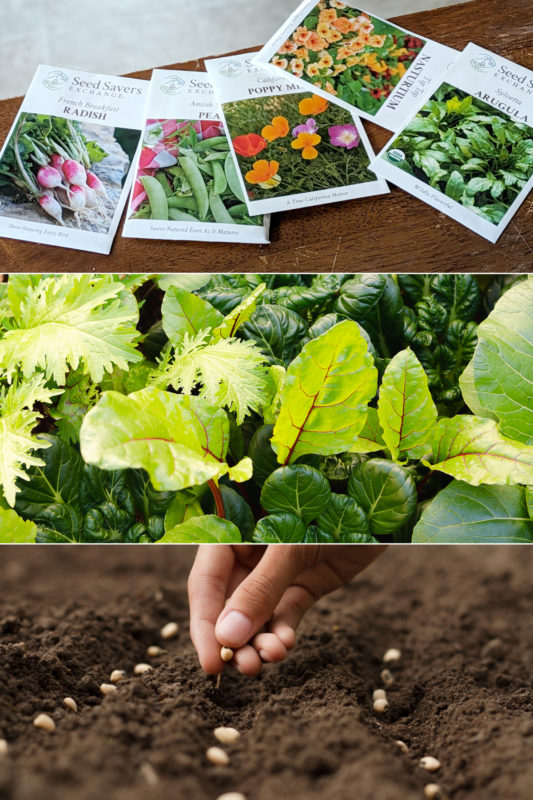
Pest Control Tips
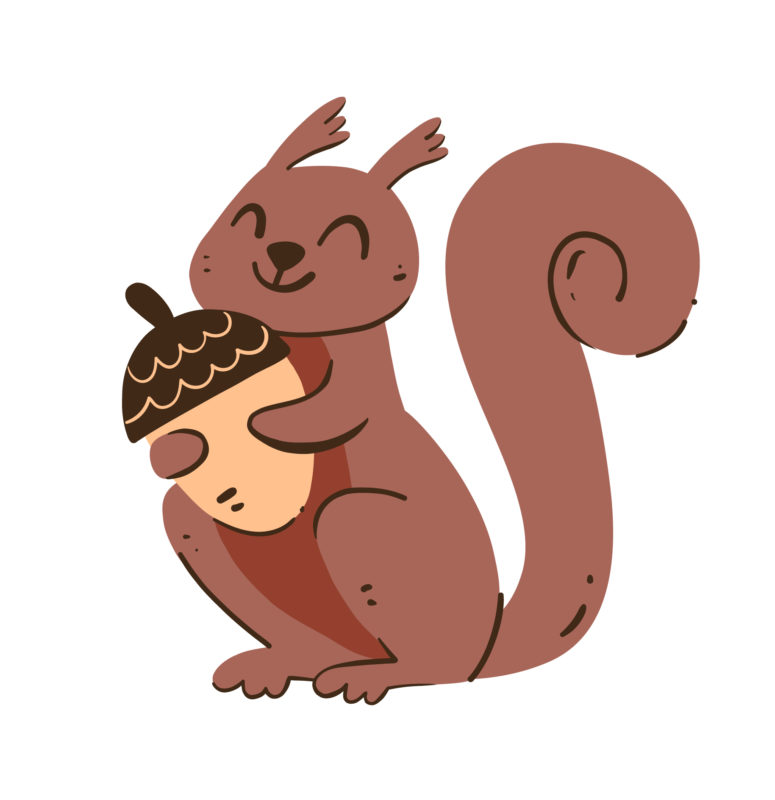 Finding holes in your leaves or half-eaten peppers on your plants? Try these tips:
Finding holes in your leaves or half-eaten peppers on your plants? Try these tips:
• Place pinecones in container pots to deter diggers.
• Save plastic clamshells from berries and trap your maturing fruit inside to protect from garden thieves.
• Plant pest-resistant herbs and flowers like rosemary and marigolds around your enticing edibles
Further Resources
For a detailed guide to growing specific vegetables in Minnesota, visit the UMN Extension site.
Want more info? We love the UMN extension guide, which covers topics including how to start seeds indoors, controlling pests, weed control, soil testing, and lots more!
Meet Your Local Producers
Starter Plants
Twin Organics
Founded in 2014 by brothers Andrew and Jacob Helling, Twin Organics supplies co-ops and restaurants throughout the Twin Cities with certified organic vegetables. Located near Northfield, Minn., they tend to 120 acres of farmland with a focus on sustainable vegetable production in greenhouses and the fields.
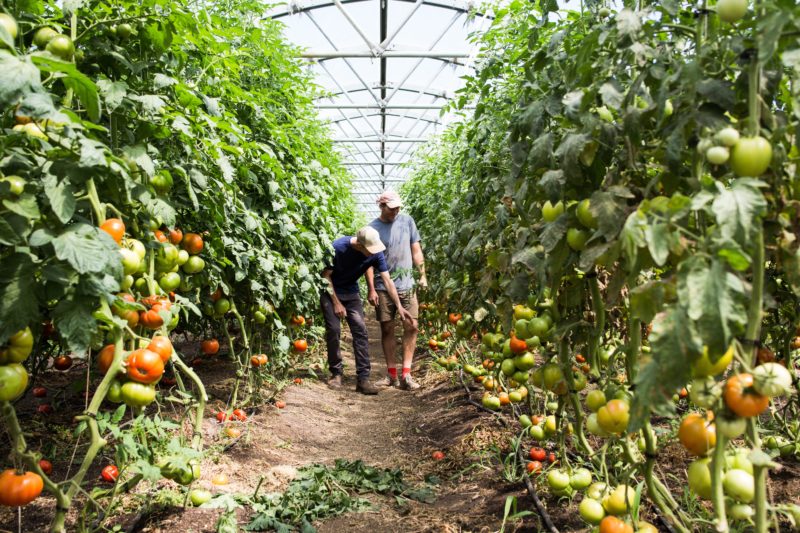
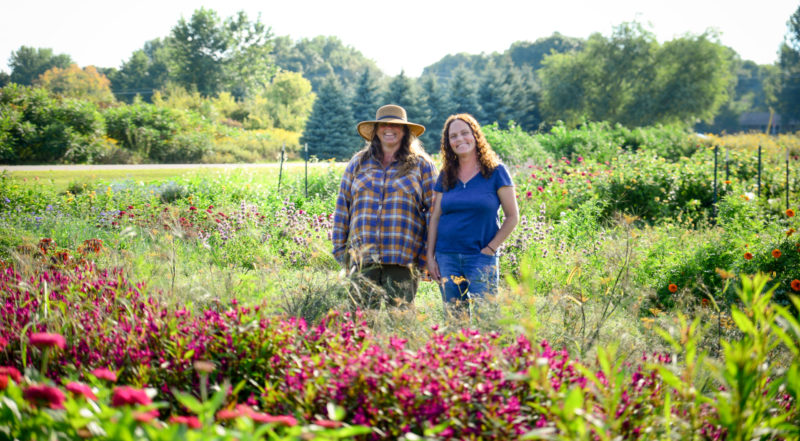
Green Earth Growers
Green Earth Growers is a small-scale, women-owned greenhouse operation that was established in 2004. Located south of the Twin Cities in Prior Lake, Minn., the business began by growing quality plants, produce, and cut flowers for local farmers, fundraisers, garden centers, landscapers, farmers markets, and restaurants. Over the years, their farmland and greenhouse space has grown. Today, Jenny and Jolea continue their commitment to growing and producing quality products with an emphasis on sustainability. Pick up a bouquet of their gorgeous flowers or try their starter plants when they’re in season this spring.
Seeds
North Circle Seeds
Located in Vergas, Minn., North Circle Seeds is committed to creating an ecologically diverse, equitable, and inclusive food system. North Circle has an intentional relationship with their seeds and their Midwestern growers’ circle, who produce regionally adapted seed using chemical-free, sustainable, and organic practices.
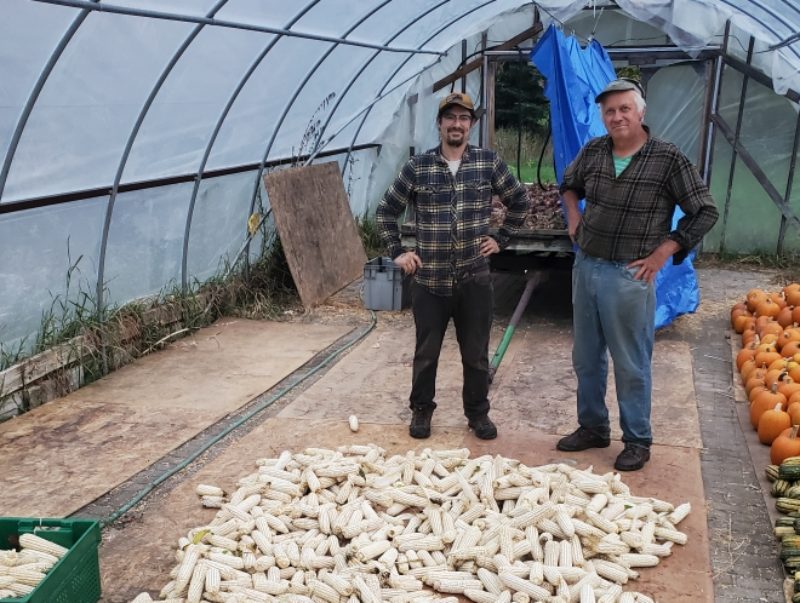
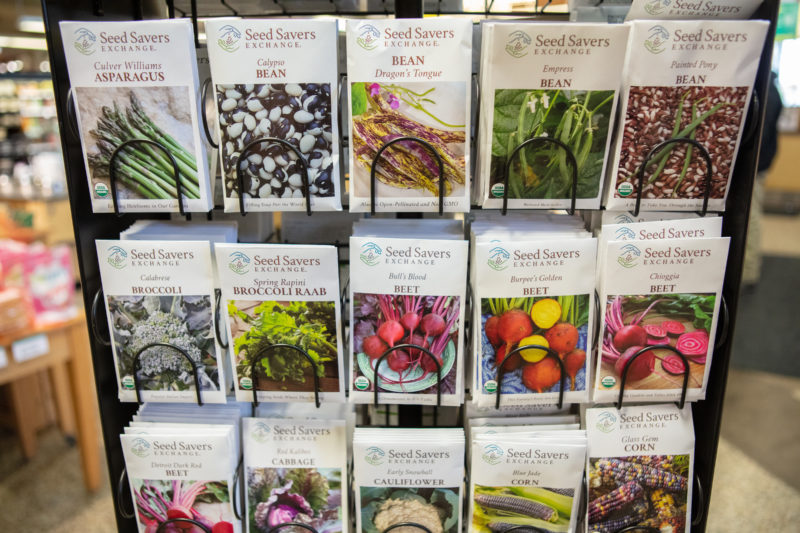
Seed Savers Exchange
Seed Savers Exchange is a nonprofit organization in Decorah, Iowa that is committed to gathering, sharing, and conserving diverse and endangered heirloom seeds. Operating in the fields of education, collection and storing, and distribution, Seed Savers is dedicated to ensuring a future for farmers and gardeners that includes a wide variety of plants.
Driftless Seed Supply
Driftless Seed Supply has home farms based in Decorah, Iowa and Mabel, Minn., but also sources seeds from other small-scale Midwest growers. With a focus on developing seeds best suited for the Midwest environment, Driftless is committed to offering high-quality seeds with integrity and transparency that are locally produced, regionally adapted.
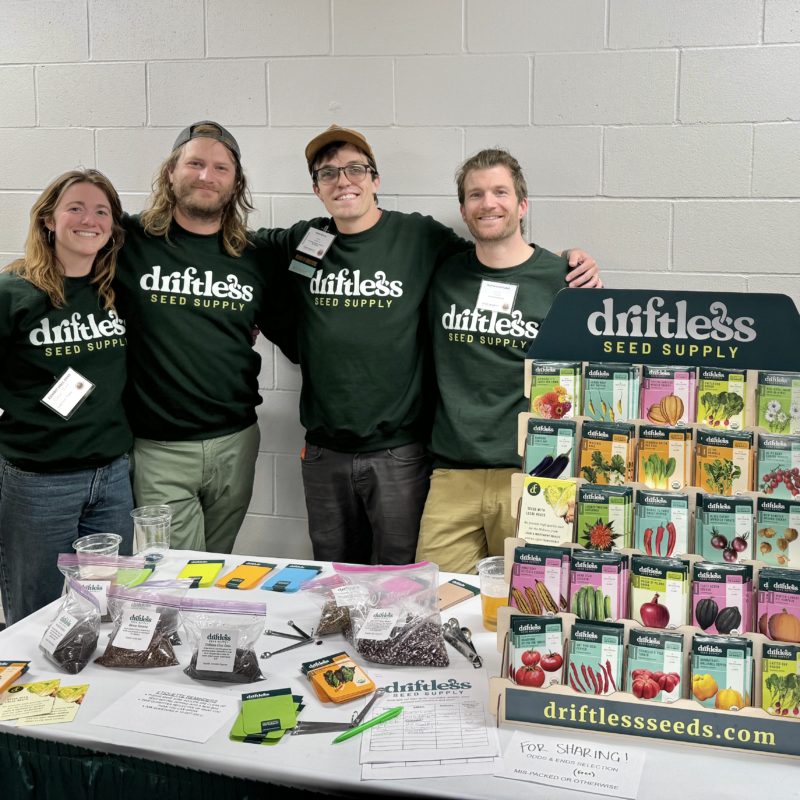
Soil
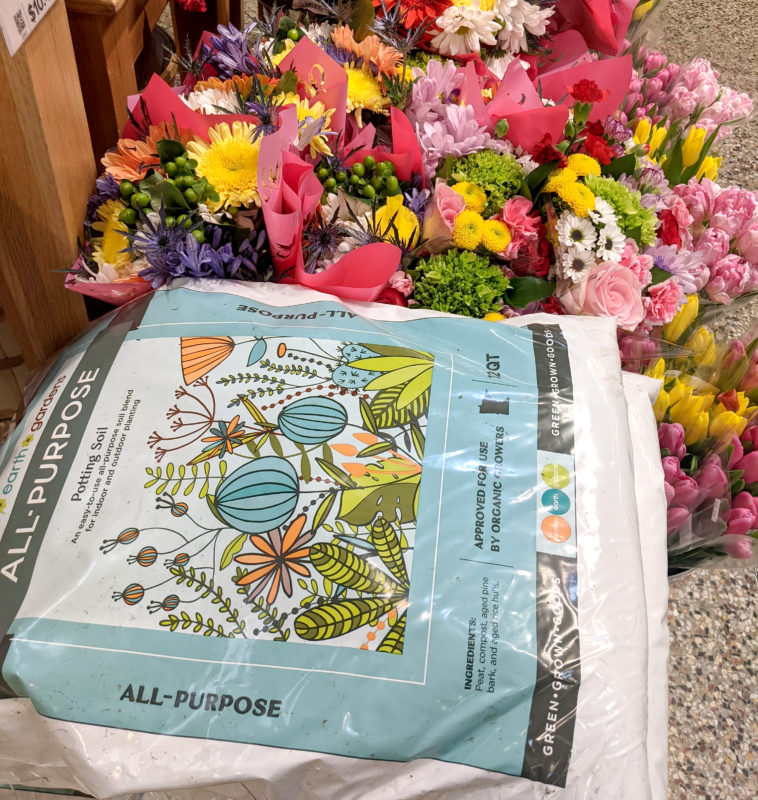
Mother Earth Gardens
Don’t forget to pick up some soil to get those plants blooming! We have potting soil year-round from local, small-scale producer Mother Earth Gardens to nurture your new plants.
